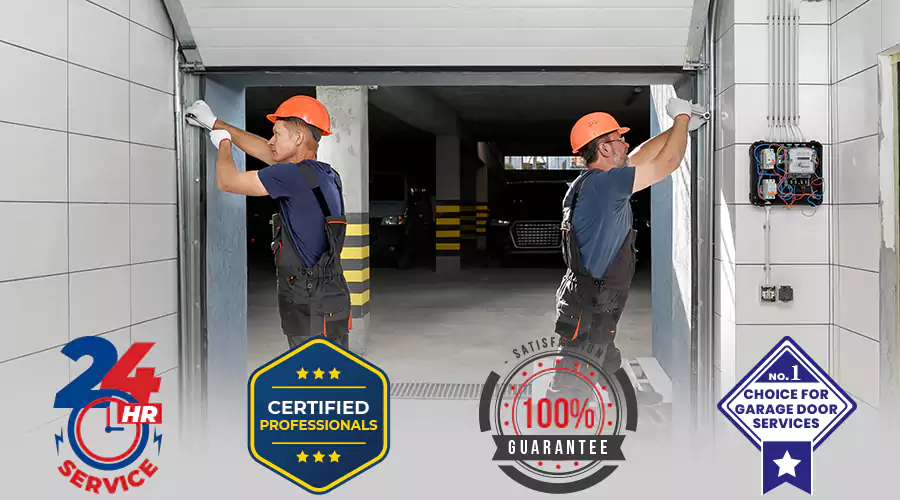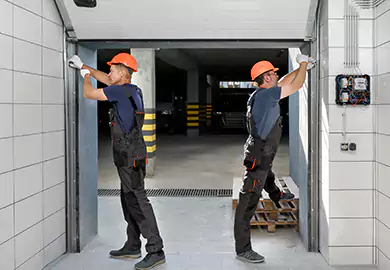
Your garage door is one of the most essential components of your home, ensuring both safety and convenience. However, over time, it can experience wear and tear due to frequent use, weather conditions, or simply aging. As a homeowner, knowing when to repair your garage door and when to replace it can save you time, money, and frustration. Many garage door issues can be fixed with a simple repair, but there are times when replacing your garage door is the more cost-effective and long-term solution.
In this article, we’ll explore key signs of a garage door malfunction, when to call a professional, and the differences between repairing vs. replacing your garage door. We will also discuss garage door maintenance tips to help prolong the life of your door and provide a garage door repair guide for those dealing with garage door issues.
When Should You Consider Replacing Your Garage Door?
Determining whether to repair or replace your garage door largely depends on the severity of the damage and the garage door's lifespan. Here are a few key signs that it might be time to replace your garage door:
- Frequent Malfunctions: If your garage door is constantly malfunctioning, it may be time for a replacement. Constant breakdowns can be more expensive in the long run than simply opting for a new door.
- Visible Damage: A damaged garage door can be more than just a cosmetic issue. If the structure or panels are bent, cracked, or broken, it might compromise the door's function. Fixing a door with significant physical damage could be costly, and replacing it might be more economical.
- Age of the Door: Most garage doors last between 15-30 years. If your door is approaching the end of its lifespan and is showing signs of wear, replacing it could be the best choice.
- Rising Energy Bills: If you notice an increase in your energy bills, it could be due to a poorly insulated or damaged garage door. An old door can lose heat in the winter or allow cool air to escape in the summer. Replacing your old door with a modern, energy-efficient model can help reduce your heating and cooling costs.
- Obsolete Features: If your garage door is outdated and lacks modern features like insulation or advanced security mechanisms, it might be time to replace it. Newer models not only enhance curb appeal but also offer better functionality and energy efficiency.
When Is a Simple Repair Enough?
Not all garage door issues require a full replacement. Many times, a simple repair can resolve the problem. Here are some common signs that you may only need a repair:
- Issues with Movement and Noise: If your garage door is moving slowly, jerking, or making loud noises like grinding, squeaking, or scraping, this could indicate a need for lubrication or component adjustments. These issues are often caused by friction between the moving parts and can be resolved through simple repairs, without the need for a full replacement.
- The Door Won’t Open or Close Properly: If your garage door isn’t working correctly, the issue could be a simple misaligned sensor or an opener malfunction. In these cases, a quick fix like re-aligning the sensors or adjusting the tension on the springs could solve the problem.
- Worn-out Weather Stripping: Over time, the weather stripping around your door can wear out, causing drafts and allowing debris to enter. Replacing the weather stripping is a simple repair that can improve the door's efficiency and appearance.
- Broken Cables or Springs: Broken springs or cables are a significant issue. These components are under high tension, and repairing or replacing them is necessary to ensure safe operation.
Garage Door Repair vs. Replace: Cost Considerations
When considering garage door repair vs. replacement, cost is a crucial factor. Here’s a breakdown of the potential expenses involved:
| Cost Factor | Repairing | Replacing |
|---|---|---|
| Labor Costs | Lower (typically $150-$400) | Higher (typically $300-$800) |
| Parts Replacement | Less expensive (springs, sensors, cables) | Higher (new door, opener, installation) |
| Long-Term Savings | Short-term solution | Better energy efficiency, long-term investment |
| Average Lifespan | Extends 5-10 years | New door can last 20-30 years |
While the cost of garage door repair may seem appealing at first, if your door is already old or prone to frequent breakdowns, you may end up spending more on repeated repairs than you would on a new door. A garage door replacement can be a one-time investment that offers long-term value.
Garage Door Lifespan and Maintenance Tips
To maximize the lifespan of your garage door, it’s essential to keep it properly maintained. Here are some garage door maintenance tips to extend its life:
- Regular Inspections: Schedule regular inspections (at least once a year) to catch minor issues before they develop into costly repairs.
- Lubrication: Regularly lubricate the moving parts of your door to prevent wear and tear.
- Tighten Hardware: Over time, nuts and bolts can loosen. Tightening these components can prevent many common garage door issues.
- Test Balance: Ensure your garage door is properly balanced. A misaligned door can cause unnecessary strain on the opener and springs.
- Clean and Maintain: Regularly clean the tracks, sensors, and panels to keep your garage door operating smoothly.
When to Call a Professional for Garage Door Repair?
If you’re dealing with serious garage door problems, such as a malfunctioning door or one that’s become off-track, it’s always best to seek professional help. Here are some situations when it’s critical to consult a professional:
- Broken Springs: Tension springs are under immense pressure, and handling them without proper training can be dangerous.
- Off-Track Doors: If the door has come off its track, attempting to fix it yourself could cause further damage or even injury.
- Electrical Issues: If your garage door opener isn’t working correctly or the sensors are misaligned, it’s best to hire a professional to avoid electrical hazards.
Conclusion: Should You Repair or Replace Your Garage Door?
Deciding whether to repair or replace your garage door comes down to several factors: the age of your door, the extent of the damage, and the cost of repair versus replacement. If your door is frequently malfunctioning, has significant damage, or is nearing the end of its lifespan, it may be time to consider a replacement. On the other hand, if the issue is minor, like a broken spring or misaligned sensor, repairing your garage door may be sufficient.
Regardless of whether you choose to repair or replace your garage door, always prioritize safety and efficiency. If you're unsure, it’s a good idea to consult a professional for a garage door repair guide and advice on the best course of action. By maintaining your garage door regularly and keeping an eye out for the signs your garage door needs repair, you can ensure that it continues to operate smoothly for years to come.


